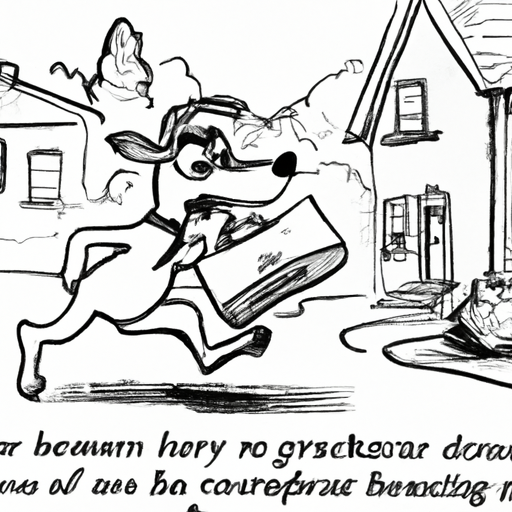Introduction
You’re a caregiver, a guardian, and a friend to your furry companion. Yet, at times, you may find yourself puzzled and distressed when your beloved pet takes off, leaving you to wonder: Why do dogs run away? In this article, we will delve into the reasons behind these puzzling escapades and offer insights on how you can prevent them.
1. The Lure of Adventure
Dogs, much like humans, are susceptible to the allure of the unknown. They are naturally curious animals and their excellent senses often lead them on adventures away from home.
- Sights: Dogs are visually stimulated and may chase after fast-moving objects, such as cars or running animals.
- Smells: Dogs have a keen sense of smell. The scent of another animal or food may lure them away.
- Sounds: High-pitched noises, sirens, or other unusual sounds can pique a dog’s curiosity and cause them to investigate.
2. The Search for a Mate
Unneutered or unspayed dogs have a biological drive to seek out a mate. This drive can be so powerful that it overcomes their usual caution and they wander off in search of a potential partner.
| Neutered/Spayed | Likelihood of Wandering |
|---|---|
| Yes | Low |
| No | High |
3. Social Isolation
Dogs are social creatures and crave interaction with their human families or other animals. If they feel neglected or bored, they may run away in search of companionship.
- Provide regular exercise and mental stimulation for your pet.
- Engage in play and training exercises.
- Consider a second pet if possible.
4. Fear or Anxiety
Loud noises, such as fireworks or thunderstorms, can trigger a dog’s flight response. Also, changes in the environment or routine can cause anxiety, leading your dog to seek comfort elsewhere.
- Create a safe space in your home where your dog can retreat during stressful events.
- Use calming products (like diffusers or wraps) to help reduce their anxiety.
5. Escaping Confinement
Some dogs simply do not like being confined, whether it’s a crate, a room, or a yard. If the confinement feels stressful or uncomfortable, they may attempt to escape.
- Make sure your dog’s living space is comfortable and large enough.
- Never use confinement as a punishment.
Frequently Asked Questions
Q: My dog keeps running away. What should I do?
A: Identify the potential reason from the list above and implement the suggested solutions. If the problem persists, consider seeking professional help.
Q: My dog ran away because of fireworks. How can I prevent this?
A: Create a safe space for your dog during such events and consider using calming products to reduce their anxiety.
Q: How can I make sure my dog doesn’t run away when I’m not home?
A: Ensure your dog is well-exercised, mentally stimulated, and comfortable before you leave. You may also want to consider a pet sitter.
Remember, as a caregiver, understanding your dog’s behavior is key to ensuring their safety and happiness. With knowledge and preventive measures, you can significantly reduce the chances of your dog running away.



